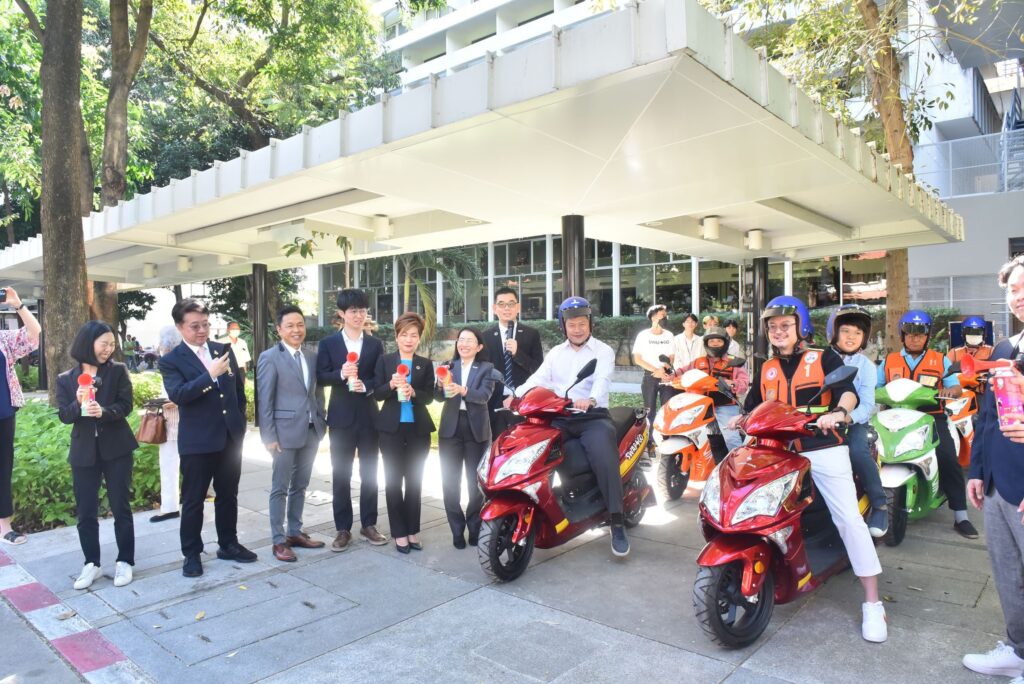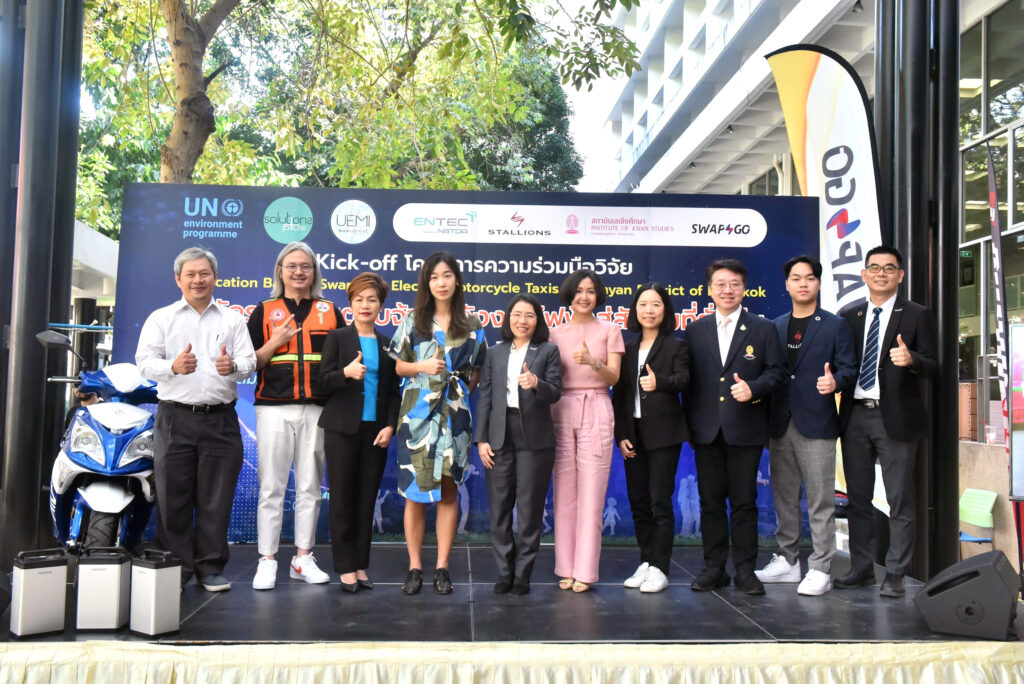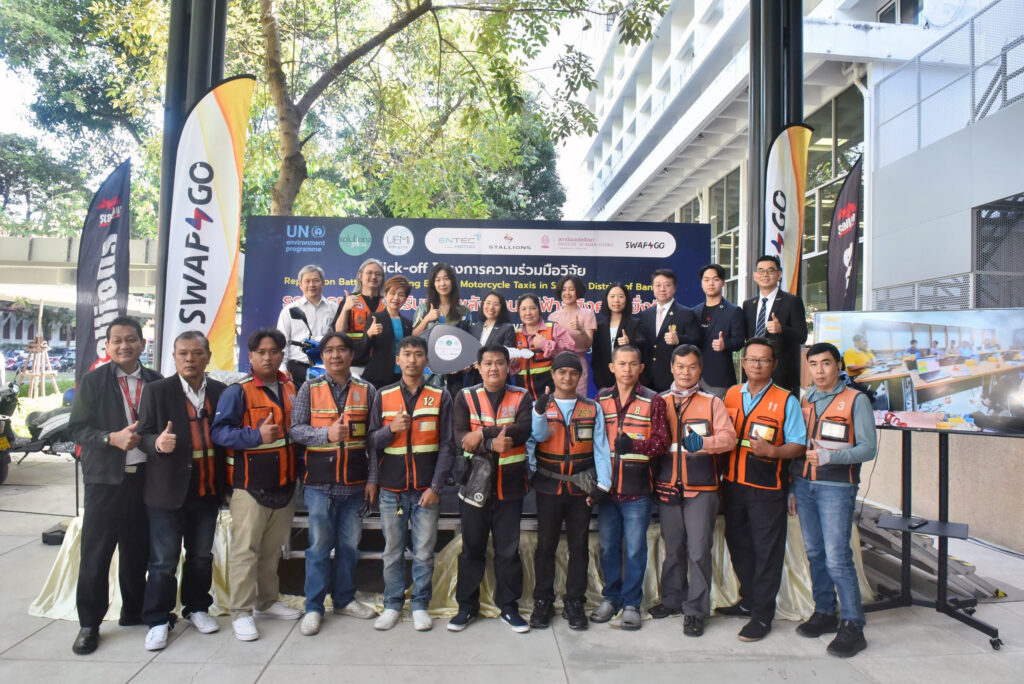

On Friday, December 22, 2023, at the Chulalongkorn University’s Chalermprakiat Building, the National Energy Technology Center (ENTEC) and the National Science and Technology Development Agency (NSTDA), in collaboration with the Asian Institute of Technology, Chulalongkorn University, STAL Group Holding Limited (Stallion), and Swap & Go Co., Ltd., under the support of the SOLUTIONSPlus fund (https://solutionsplus.eu/) through the Urban Electric Mobility Initiative (UEMI), organized the Kick-off event for the Replication Battery-Swapping Electric Motorcycle Taxis project in the Samyan District of Bangkok. The project aims to transition to electric vehicles, promote the use of electric motorcycles as public taxis, reduce air pollution, minimize noise pollution, and enhance the quality of urban life.
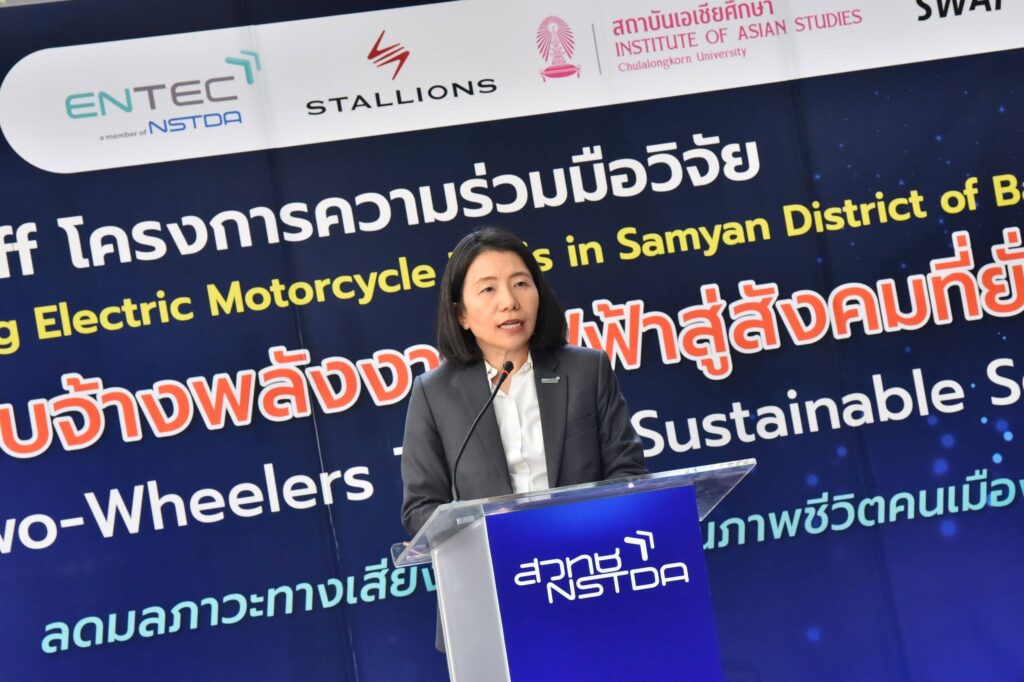
Dr. Sumittra Charojrochkul, Director of the National Energy Technology Center (ENTEC), stated that in the current crisis of air pollution, particularly fine particulate matter PM2.5, and the climate variability due to global warming issues, the National Science and Technology Development Agency (NSTDA) through ENTEC, with support from the SOLUTIONSPlus fund (https://solutionsplus.eu/) via the Urban Electric Mobility Initiative (UEMI), in collaboration with the Asian Institute of Technology, Chulalongkorn University, STAL Group Holding Limited (Stallion), and Swap & Go Co., Ltd., has actively promoted the expansion of electric motorcycles among public taxi drivers in the congested traffic area of Samyan. This initiative aims to provide an alternative for transitioning from private car use to a more efficient public transportation system.
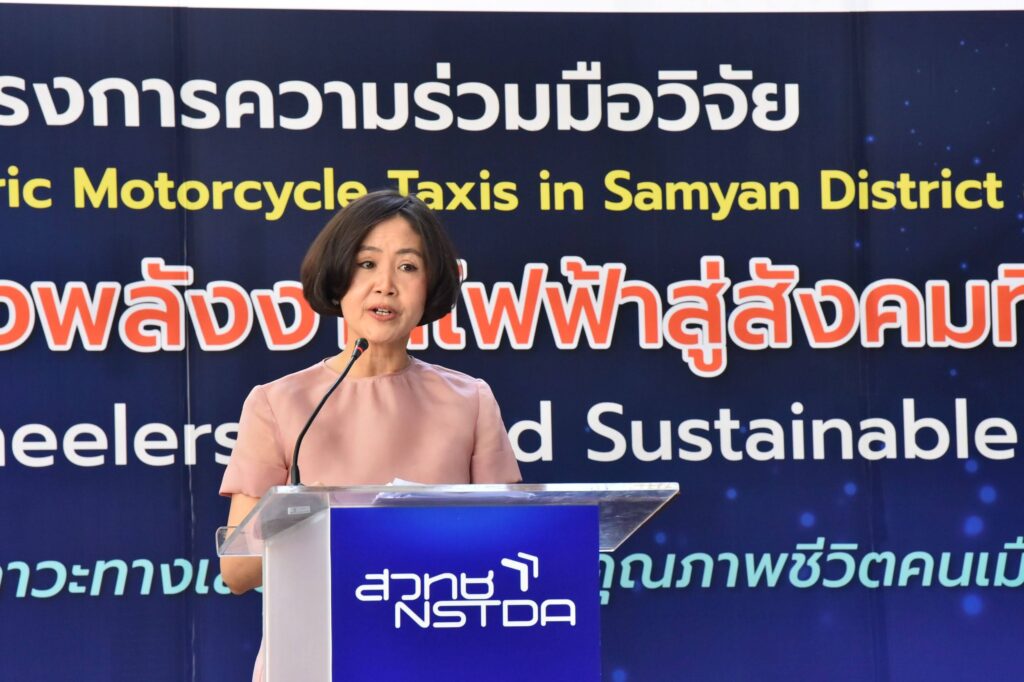
Assoc. Prof. Dr. Pavika Sriratanaban, Director of the Institute of Asian Studies, expressed that in addition to energy and environment factors, pushing the public taxi drivers must be taken into account on their financial situation as well, especially in urban areas where the living cost is high. The selected motorcycles are their working tool that may affect their financial stability. Therefore, it is a good opportunity for this project to study a solution on reducing the cost to own an electric motorcycle to be equivalent to the daily fuel expense of conventional motorcycles. This can break down financial barriers and facilitate a smooth transition to electric motorcycles for the public taxi drivers. This enables the way to push forward to sustainable environmental developments, coupled with the economic realities of public motorcycle taxi drivers.
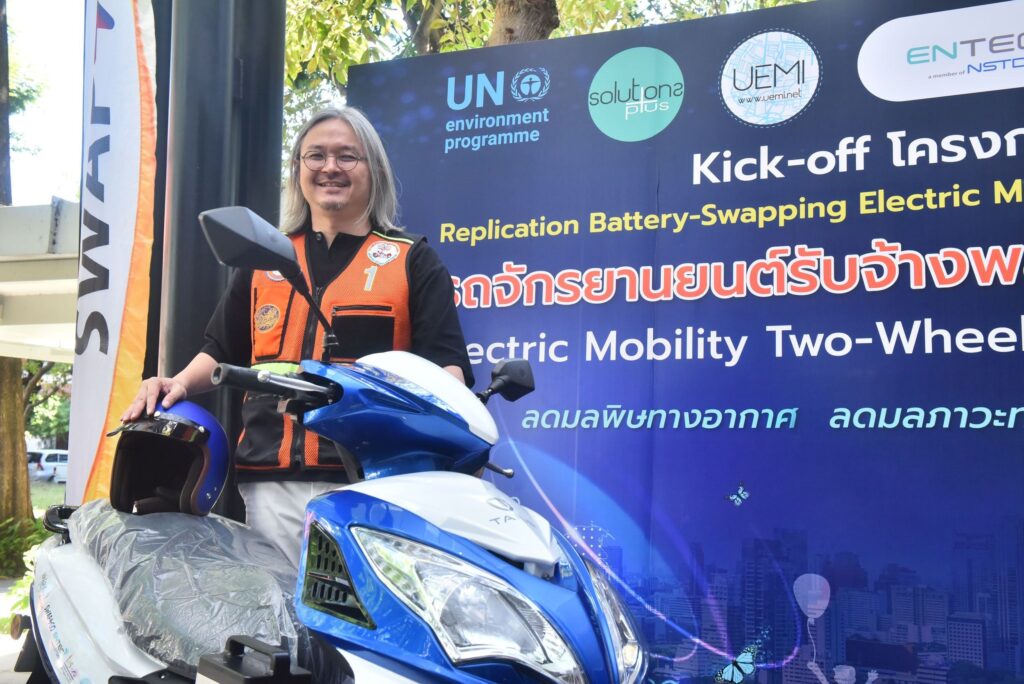
Mr. Akkanut Wantanasombut, a researcher at the Asian Institute of Technology, mentioned that the factors influencing motorcycle taxi drivers, known as “Phiwins,” to shift to using electric motorcycles instead of conventional fuel-powered ones go beyond price support and financing. It was found that drivers still express concerns about expenses, vehicle performance, and the risks associated with transitioning to electric motorcycles. Therefore, there’s a necessity to develop an environmentally suitable and compatible system, requiring collaboration from various sectors. This includes establishing battery standards for uniformity across the system, increasing the prevalence of battery swapping stations, setting standards for electric motorcycles used for passenger transport, and considering the economic challenges faced by the drivers in urban areas. In this project, a comprehensive approach is taken, studying the social, economic, and environmental aspects to propose the most suitable solution for facilitating a fair transition. This initiative aims to encourage over 80,000 drivers in Bangkok and its suburbs to consider switching to electric scooters.
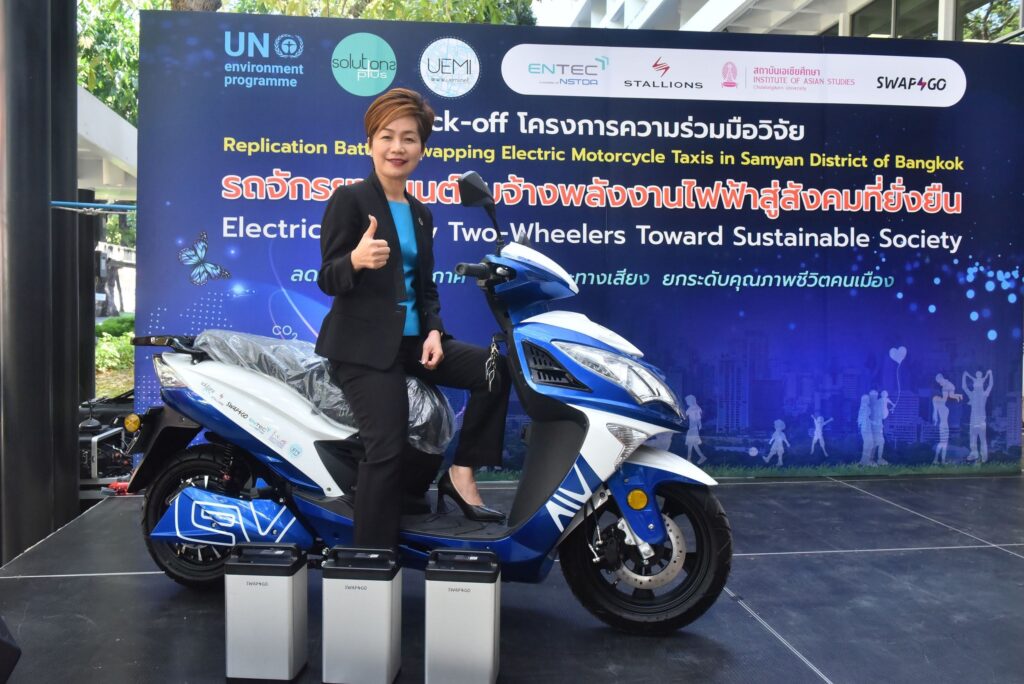
Mrs. Areerat Sriprathai, Chairperson of the Board of Directors at The Stallion Company Limited (representing STAL Group Holding Limited), emphasized that electric motorcycles are environmentally friendly vehicles that can address air pollution and the global warming crisis. However, the high value of crucial components, especially batteries relying on imported raw materials, results in a higher overall cost compared to conventional fuel-powered motorcycles. This project is considered a favorable opportunity as it receives additional government support. The company actively participates by presenting electric motorcycle models that have undergone testing in collaboration with the National Energy Technology Center, the Electricity Generating Authority of Thailand, and TAILG, the third-ranking electric motorcycle brand in China. The project also includes a post-sales service program to ensure the success of electric motorcycle usage throughout the project.
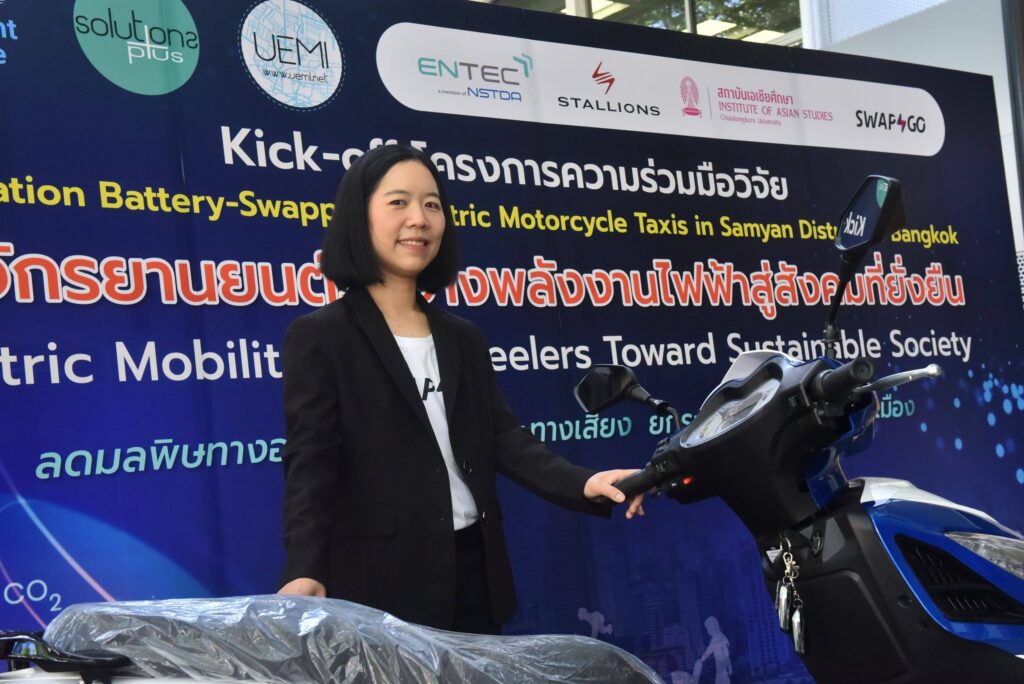
Ms. Arweemas Sirisaengtaksin, the Managing Director of Swap & Go Co., Ltd., emphasized that Swap & Go is a battery-swapping platform for electric motorcycles, focusing on building a network to enhance the convenience of using electric motorcycles, contributing to the development of the EV ecosystem. They have developed batteries compatible with various electric motorcycle brands, offering universal swapping through collaboration with local electric motorcycle manufacturers. In this project, Swap & Go introduces special battery-swapping packages, allowing public motorcycle taxi drivers, Phiwins to swap batteries at conveniently located stations within the project’s target areas. They are also expanding service stations to make it easier for drivers to access and provide long-distance passenger services seamlessly in the future.
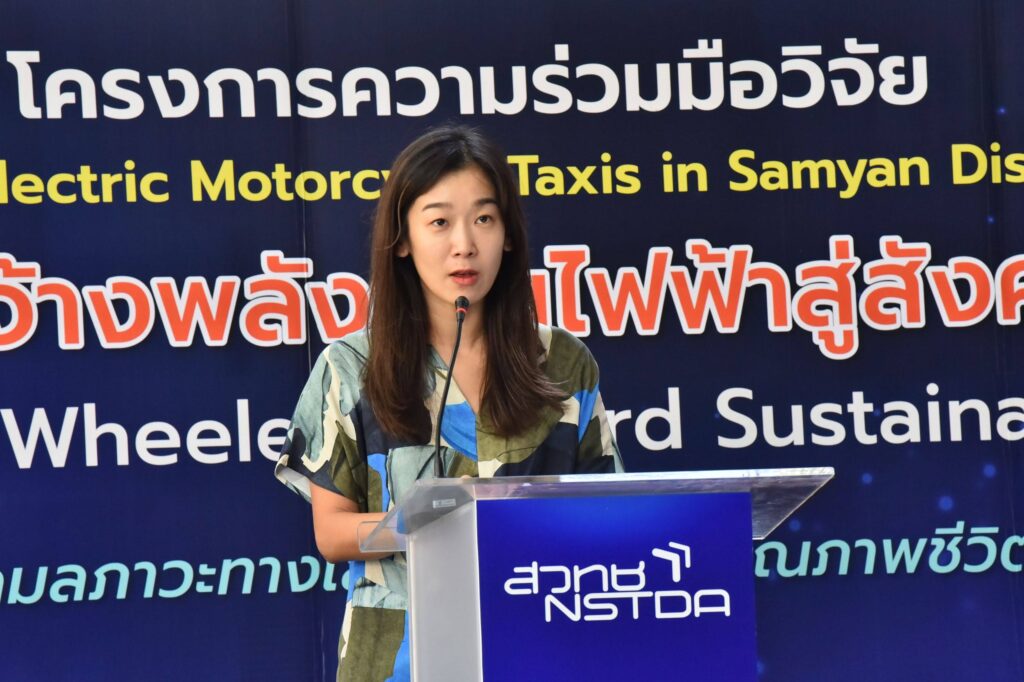
Ms. Yeonju Jeong, representing the SOLUTIONSPlus fund, reinforced that this project aims to further support the pricing of electric motorcycles, in addition to the government’s backing. The goal is to introduce 30 electric motorcycle taxis, pioneering the use of electric motorcycles in the economic hub of Bangkok. This aligns with the objectives of the Urban Electric Mobility Initiative (UEMI), which aims to support the transition to electric vehicles, especially in urban areas with dense air pollution. The initiative encourages urban residents to opt for more efficient public transportation systems, focusing on first and last-mile travel options. This aims to enhance the quality of life for city dwellers, reduce air pollution, and minimize noise pollution.
